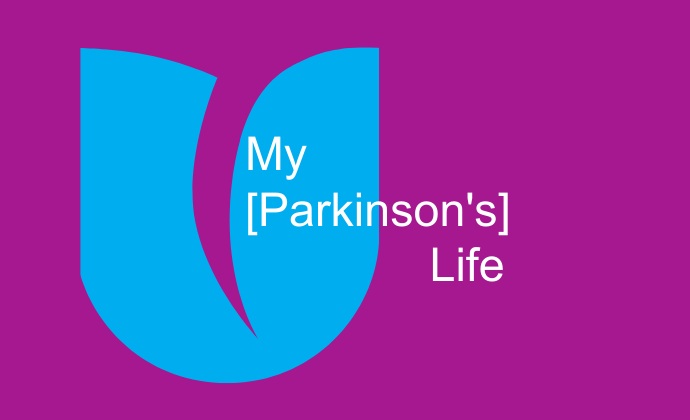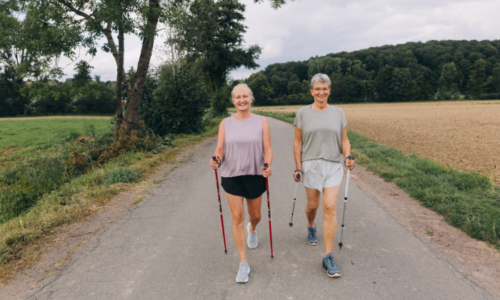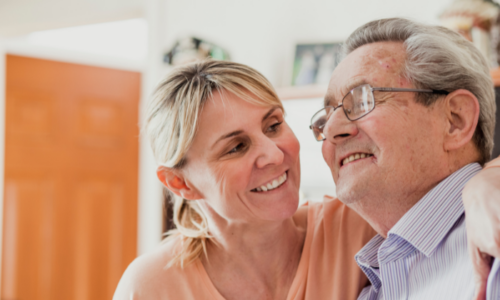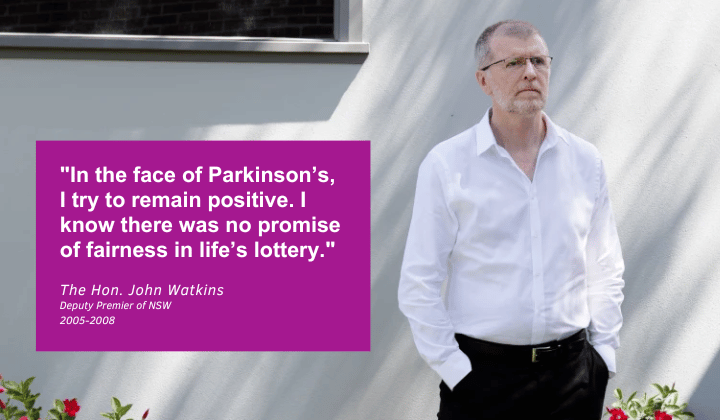Helen and Arthur Tan met and married in Sydney over four decades years ago when they both migrated from their homes in Malaysia. Helen was doing nursing training and Arthur was an accountant.
“After three years in nursing, I stopped to start a family,” says Helen. “Our daughter is now 41 and our son Matt is 39.
“Matt is on the autism spectrum and is high-functioning, though he still needs some help in organising all his programs.”
As the children headed off to school, Helen took a new career direction, becoming a manager for Australia Post for 25 years while Arthur remained in accountancy.
Towards the end of that time, Helen noticed her husband was having difficulties with some aspects of ordinary activities, such as tying his shoelaces and fastening buckles.
“When I started nursing, one of my first patients had Parkinson’s,” says Helen. “I could see that Arthur’s gait was changing. Even a visiting relative said to me that she felt there was something wrong.
“He was working for a printing business and had to sign more than 100 cheques each week. He was having difficulty with his handwriting and couldn’t sign the cheques properly. In the end he resigned from the job.
“Arthur was slowly deteriorating but he didn’t want to see a doctor or have any intervention. At the same time, Matt was growing up and needed more experience in things like socialising and handling money to build his independence.
“I decided to quit my position with Australia Post and open a café to help Matt gain experience working with me.”
As Helen’s café business took over her time, Arthur’s condition continued to deteriorate to the point that he couldn’t get up from his chair without assistance.
“I had to be quite blunt with him that things couldn’t go on this way,” says Helen.
“The first GP we saw recommended a neurologist. After all the tests were done the neurologist told us he was 99 per cent sure it was Parkinson’s and asked if Arthur want to know any more about it. Arthur said no, and then refused any treatment.
“The neurologist just told us to come back in six months. I was quite upset because he needed treatment. Eventually I found out about the InfoLine run by Parkinson’s NSW.
“I didn’t realise the line was staffed by Registered Parkinson’s Nurses and the one I spoke with was great. That phone call was the best thing and totally changed our lives.
“She was able to recommend another neurologist who was just wonderful. He explained what I could expect to happen and about the medication – and told me to pick up the phone any time I needed more information. We had a great personal rapport.”
While Helen was at last getting her husband to accept treatment and also helping her son to build towards his goals with the cafe, her own health was being ignored amid her hectic life.
“My GP tracked me down to the café and told me I needed to go and get a scan done,” she recalls. “I was very, very close to a major heart attack. I had forgotten to see my cardiologist for two years. I needed urgent surgery and I had my procedure done. I’m all good now.”
Once Arthur’s condition was being treated Helen found more ways for him to manage his health, to the point where almost every day Helen took Arthur to a class.
“He was enjoying Dance for Parkinson’s, PD Warrior, Tai Chi, hydrotherapy, speech therapy and other special classes and was very healthy physically,” says Helen.
“We also participated in the first Unity Walk for Parkinson’s which led us to several others, fundraising with our teams. We even had family fly out from Malaysia and Singapore to take part in the Walk, which was wonderful.
“We were also involved with the local Parkinson’s Support Group, which was helpful, and for about five years Arthur managed quite well.
“But over the last couple of years things became more difficult to manage Arthur at home. Matt could see how hard I was working trying to do everything and he wanted to help me with things like showering his father.
“Unfortunately, the whole thing changed family dynamics. Matt wasn’t able to go to his day program because of COVID-19 and he was finding the changes at home with his father very difficult to handle.”
When Helen confided her concerns to her doctor he suggested that Arthur go into respite care to give the family a chance to rebuild, and then after a month Arthur returned home. By then, Helen knew it was time to find him full time care.
“We were able to get him into a wonderful nursing home just five minutes from my home,” she says.
“The social coordinator came to our house and we explained all of the things he wanted to continue doing. They set up things so that he can join activities through Zoom such as speech and dancing and even church online. As he is now a high falls risk, they have set up monitoring equipment. I cannot thank the staff enough.”
Arthur is now 70 and enjoys the activities in the nursing home while also being brought home for a family lunch once a week. Helen, 65, can now focus on guiding her son, who is managing his own routines more effectively, and taking care of her own health.
“Last year I just kind of burned out, I had been constantly busy looking after other people for too long,” she says. “I know now that I need to care for my own health if I’m going to look after others. And that it’s OK to ask for help and to accept help. It’s also good to talk with people who’ve been through the same things.
“I’m a Christian and I feel quite blessed. I’ve learned so much on this journey.”








